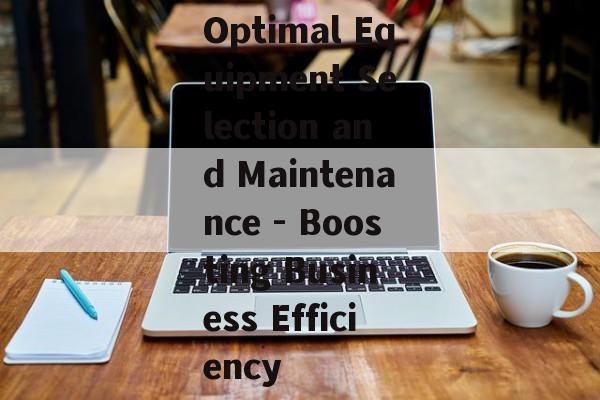1. Understanding the Importance of Equipment Selection
The right equipment can make or break a business. Selecting equipment that aligns with your business needs is crucial for efficiency and productivity. When considering equipment, think about the tasks it needs to perform, the capacity required, and the long-term maintenance implications. This initial selection process sets the foundation for future operations.
2. Factors to Consider in Equipment Acquisition
Cost, durability, and technological advancement are key factors to consider. While it might be tempting to opt for the cheapest option, investing in high-quality equipment can save money in the long run through reduced maintenance costs and increased longevity. Additionally, the equipment should be compatible with the latest technology to ensure scalability and adaptability.
3. The Role of Preventive Maintenance
Preventive maintenance is essential to ensure the longevity and efficiency of equipment. Regular check-ups can identify potential issues before they become major problems, reducing downtime and repair costs. Implementing a preventive maintenance schedule can significantly extend the life of your equipment and improve overall business operations.
4. Upgrading Equipment for Enhanced Performance
As technology advances, upgrading equipment can be a strategic move. Upgrades can improve performance, reduce energy consumption, and enhance safety features. Assessing the cost-effectiveness of upgrades versus purchasing new equipment is crucial. Sometimes, a simple software or hardware upgrade can suffice to meet new business demands.
5. Optimizing Equipment Use for Maximum Efficiency
Optimizing equipment use involves training staff to operate the machinery effectively and efficiently. Proper training ensures that the equipment is used to its full potential, minimizing errors and breakdowns. Additionally, integrating equipment with other systems, such as automated software, can further streamline operations.
6. Ensuring Equipment Compliance and Safety

Compliance with industry standards and safety regulations is paramount. Regular safety inspections and ensuring that all equipment meets the necessary certifications can prevent accidents and legal issues. It's also important to stay updated with industry regulations to avoid penalties and ensure the safety of your workforce.
In conclusion, the right equipment and its proper maintenance are pivotal for business success. By carefully selecting equipment, implementing preventive maintenance, considering upgrades, and optimizing usage, businesses can enhance their efficiency and productivity. Ensuring compliance and safety further solidifies the foundation for a thriving business operation.










评论列表